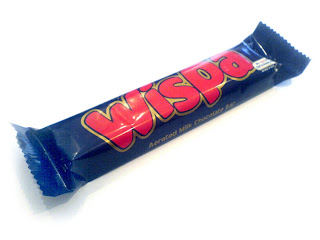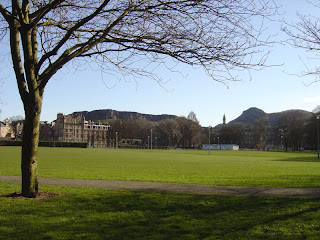Nevermind the
Buzzcocks
Started in 1996, this is a comedy panel show about popular
music. Over the course of four rounds, two teams of three (led by comedians
Phil Jupitus and Noel Fielding, with weekly guests) answer questions about
music and songs. Currently hosted by Welsh comedian Rhod Gilbert, it has had a
plethora of hosts over the years. The show has run through 28 series and 296
episodes so far.
 |
| Phil Jupitus and Noel Fielding |
QI (Quite Interesting)
 |
| Alan Davies and host Stephen Fry |
Hosted by Stephen Fry, QI
is a panel comedy-quiz show in which four celebrity panelists (including
permanent guest comedian-actor Alan Davies) answer trivia based questions.
Points are given out for correct answers, and guests try to avoid the “obvious”
answer (a flashing screen with the answer results). The goal is more about enlightening
the audience rather than winning the game. Each series (of 16 episodes each) is
built around a letter (starting with A in series 1). They are currently on Series
L (Series M will start in September).
Mock the Week
 |
| Dara O'Briain and crew |
A topical comedy panel show in which comedians perform
improvised comedy based on that week’s news. Sort of a Whose Line Is It Anyways meets The
Daily Show. Started in 2005, and hosted by Irish comedian Dara O’Briain, it
has aired for 13 series (of usually 13 shows each) on BBC 2. Below is their 2015 New Year's special:
Have I Got News For
You
One of the first celebrity panel shows, this BBC regular
started in 1990, and now has run for over 422 episodes. It takes a satirical
look at the news via a quiz show format. Rotating hoists and guests are met each
episode by regulars comedians Paul Merton and Ian Hyslop.
University Challenge
A tougher, less forgiving version of Jeopardy, this is a
British tradition that goes back to 1962. The original series ran from 1962 to
1987 for 900+ episodes. The current version started in 1994 hosted by news
broadcaster Jeremy Paxman. The show consist of two teams of university students
who compete “Brain Brawl style”. Here is chat host Graham Norton playing thr game with Paxman:
Chat shows
The Graham Norton Show
For Americans (thanks to BBC America), this is the best
known of the British chat shows. Hosted by Irish comedian Norton, this is the
closet the UK has to the Tonight
Show/Late Show, if a bit boozier and looser. The main difference is that
all the guests come out at once. The show started (not in its 17th
series) started in 2007 on BBC Two, but was switch to BBC One in 2010 with the
end of the popular Jonathan Ross Show
(see entry below). Here is the episode with Benedict Cumberbatch:
The Jonathan Ross Show
Currently in its 8th series (like many series, it
runs two series a year) with a total of 97 episodes, it is hosted by popular yet controversial
presenter and comedian Jonathan Ross. Like Norton, his is a British version of
the late night chat show. He is most famous for a 2002-2010 BBC show, Friday
Night with Jonathan Ross, but was let go by the BBC after several controversial
pranks. (He was replaced by the aforementioned Graham Norton Show). Because of BBC America, he was popular in the
US, but is less known now, as there is no US version of ITV.
Parkinson
While no longer on the air, Michael Parkinson’s interview show
was an institution in the UK from 1971 till 2007, with over 500 episodes. “Parky”
interviewed nearly every major UK and American
celebrity. Some have been controversial, such as his frankly sexist
interview of then-newcomer Helen Mirren (see video below). Scottish comedian Billy Connolly broke into the
mainstream with a hilarious appearance on Parkinson’s show (Connolly also appeared
with Michael Caine on Parkinson’s last show, as well -- also below)

























































